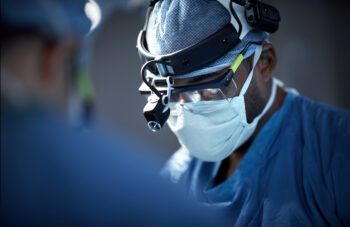
We are committed to vital research that will produce long-term recovery results for spine health patients while getting them out of the hospital faster and back to their lives. This concept of getting better faster after a surgery is called enhanced recovery after surgery, or ERAS.
Enhanced Recovery After Surgery
Our recent work on the hospital protocol called Enhanced Recovery After Surgery (ERAS) is showing promising results. This research relates to getting patients better and stronger faster, and out of the hospital more quickly after surgery. It is patient-centered and based on evidence discovered after observing a patient’s response to surgical procedures.
Our work has shown a reduction in the length of hospital stays, narcotic usage, earlier ambulation, and earlier restoration of bladder and bowel function. Currently, we are combining our data with HCA hospitals around the country to continue making progress with a larger data pool, which will help us make great progress.
>>>>> What is the Future Potential of Regenerative Medicine?
We hope to take this to the next level. One way we’ll do that is by looking at exactly how much narcotic medication was used after a surgery. This will be done by counting pills, which gives us a more accurate assessment of what patients are actually using compared to what they are given. By doing this, we will learn more about prescribing just the right amount of medication based on average usage per type of surgery. There are exciting developments in Enhanced Recovery After Surgery (ERAS) and we are so excited to be a part of it.
In addition to ERAS, there are several other research projects we are working on. A couple more projects to keep an eye on are below.
>>>>>> How Artificial Intelligence is Advancing Spinal Healthcare
Augmented Reality Assisted Spine Surgery Outcomes
With augmented reality, we are looking prospectively at clinical and patient reported outcomes in new technology. We take a retrospective analysis of specific measures and configure what needs revision and enhancement. Augmented reality in spine health is becoming more and more important as technology expands.
Discogenic Pain Study
This study aims to look at patients with only discogenic pain as a diagnosis. How can surgery can effectively treat this when non-operative treatments have failed? Many insurance companies and physicians/surgeons do not recognize discogenic pain as a reason to have surgery yet, so it’s extremely important to continue research on this issue and ensure patients have access to the tools and treatments they need.
You can learn about some of our other research projects here. Enhanced Recovery After Surgery (ERAS), augmented reality and discogenic pain studies are all important for the future of spine health and we look forward to seeing where this research leads the industry.
Check out this interview with our Medical & Scientific Board Chairman Dr. Thomas Schuler here:



